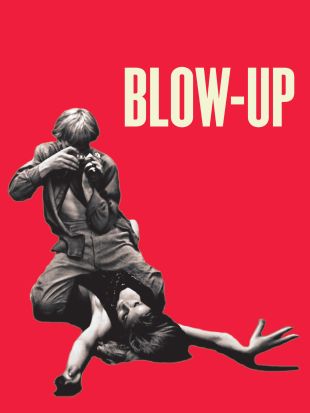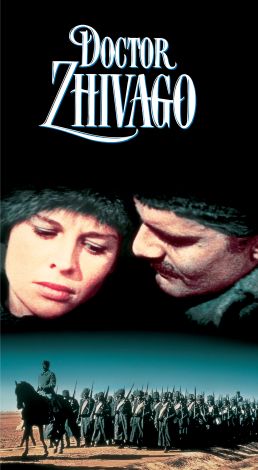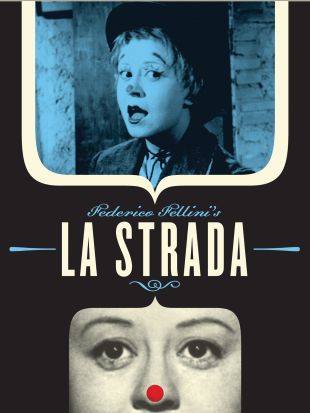Italian mega-producer Carlo Ponti's resumé reads not only like a checklist of the golden highlights of postwar European cinema, but as a testament to the creative vision of a maverick -- a filmmaking revolutionary defiantly unafraid to take enormous career risks. In the final analysis, Ponti's consistency in gracing the pinnacle of success and breaking new filmic ground time and again -- in Italy, Great Britain, and Hollywood -- is virtually unprecedented in moviedom. Born December 11, 1913, in the hamlet of Magenta, Italy, on the outskirts of Milan, Ponti studied law as a young man and launched his own practice as an attorney before entering filmmaking with the Mario Soldati-directed period epic Piccolo Mondo Antico in 1940, starring Alida Valli. That picture's twin commercial and critical triumphs enabled Ponti not simply to continue his production-oriented work, but to ride the crest of Italian neorealism by collaborating with the top helmers in Italy as the '40s progressed, including Luigi Zampa (Vivere in Pace [1947], Cuori Senza Frontiere [1949]), Alberto Lattuada (Il Mulino del Po [1949]), Renato Castellani (Mio Figlio Professore [1946]), and Pietro Germi (Gioventu Perduta [1947]).
In 1950, Ponti teamed with another brilliant mind on the south European filmscape, Dino de Laurentiis. During their seven-year partnership, the men extended their influence beyond the Mediterranean with a series of massively budgeted international co-productions, the most famous of which was King Vidor's Italian-American joint venture War and Peace (1956), an adaptation of the Tolstoy novel starring Audrey Hepburn, Henry Fonda, and Mel Ferrer. Regional (Italian) co-productions of Ponti and de Laurentiis during the '50s included Alberto Lattuada's 1951 Anna, Roberto Rossellini's Europa '51 (1952), and Federico Fellini's La Strada (1954) -- not exactly the first film to launch Fellini onto the international scene (the still-influential Variety Lights, The White Sheik, and I Vitelloni preceded it), but a hallmark of international cinema nonetheless, and one of its director's most vital works, winning the Academy Award for Best Foreign-Language Film.
This idea -- that of seeking out, nurturing, and cultivating exciting cinematic talent, both new and established -- became something of a hallmark of Ponti's career, evident in his decision to shepherd then-neophytes Martin Ritt (Black Orchid [1958]), Sidney Lumet (That Kind of Woman [1959]), and especially Jean-Luc Godard (A Woman Is a Woman [1961]) through production and distribution channels. (The ongoing involvement with Godard made Ponti one of the few producers in history to aggressively shape both Italian neorealism and the French New Wave.) Additional credits during the 1960s include George Cukor's Heller in Pink Tights (1960), David Lean's Doctor Zhivago (1965), and Milos Forman's The Firemen's Ball (1967).
The Ponti-produced Blow-Up (1966) and Zabriskie Point (1970) -- both directed by Michelangelo Antonioni -- and especially Paul Morrissey's ultraviolent twin horror features Blood for Dracula and Flesh for Frankenstein (1973), represented massive risks from the standpoint of content, but paid off critically and commercially, becoming runaway sleeper hits.
Meanwhile, alongside Ponti's career accomplishments, his personal life crescendoed. In 1950, he purportedly served as a 37-year-old judge for a beauty contest and fell for one of its contestants, the luminous Sophia Loren -- at that time, only a 15-year-old girl named Sofia Lazarro. In 1956, 22-year-old Loren wed Ponti in Mexico, and their marriage lasted over four decades, until Ponti's death. It survived repetitive tabloid interference, Ponti's alleged adulteries, and rumors of Loren's feelings for other men. They had two children together, symphony conductor Carlo Jr. and director Edoardo, in addition to two children from Ponti's first marriage. During the early years of their union, Ponti prepped the then-ingenue for international stardom, and hit a watershed moment in the pursuit of that goal when Loren won the 1961 Best Actress Oscar for Two Women, directed by Vittorio De Sica. Ponti's production-oriented work lasted through the end of the 1970s, but after 1976's elephantine disaster opus The Cassandra Crossing and 1977's well-received Una Giornata Particolare, he largely retired. In later years, Ponti and Loren moved to Switzerland together. Ponti died of pulmonary complications in Geneva, Switzerland, on January 9, 2007 -- merely three weeks after celebrating his 93rd birthday.


